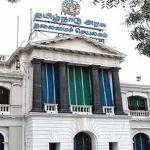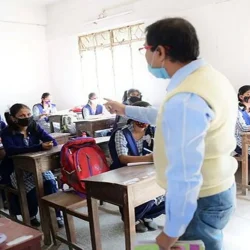Introduction
On October 11, 2024, Chief Minister A. Revanth Reddy initiated a significant educational reform by laying the foundation for 28 Young India Integrated Residential Schools (IRS) across Telangana. This initiative aims to provide high-quality English-medium education to underprivileged students while promoting inclusivity by bringing together students from diverse social backgrounds.
A Revolutionary Educational Model
Unlike traditional residential schools in Telangana, which often restrict admission to specific social categories such as Scheduled Castes (SC), Scheduled Tribes (ST), or Other Backward Classes (OBC), the new IRS will foster an environment that welcomes students from all walks of life. This inclusive approach is designed to create a supportive and enriching atmosphere conducive to holistic development.
Burra Venkatesham, Principal Secretary of the Education Department, emphasized the importance of this new structure: “The design will allow students to concentrate entirely on their studies, free from the distractions of financial or material hardship.” Each IRS campus will span 25 acres, equipped with modern amenities, including digital libraries, smart boards, and computer labs, providing students with a cutting-edge learning experience.
Sustainability and Accessibility
The architectural design of the IRS campuses will focus on sustainability and inclusivity, adhering to global accessibility standards. Each facility will utilize wind and solar energy and implement rainwater harvesting systems to achieve net-zero emissions. This commitment ensures that all students, including those with disabilities, can thrive in a conducive learning environment.
Capacity and Investment
Each IRS will accommodate 2,560 students and employ 120 teachers, significantly increasing the availability of quality education in the region. With a total budget of ₹5,000 crore, the government plans to invest ₹125 crore in each school. If executed effectively, this initiative has the potential to redefine educational standards across Telangana.
Fostering Unity and Brotherhood
In his address during the inauguration, Chief Minister Revanth Reddy highlighted the importance of fostering a sense of unity among students. He stated, “These integrated schools will be role models for the entire country. They will promote brotherhood and unity instead of segregating students based on their backgrounds.” Reddy criticized the previous government’s approach to education, pointing out the closure of numerous government schools and the lack of essential facilities in existing residential institutions.
Addressing Criticism and Challenges
The Bharat Rashtra Samithi (BRS) has expressed skepticism regarding the Congress government’s initiative. Activist R.S. Praveen Kumar labeled the plan as “old wine in a new bottle,” arguing that larger student bodies may hinder effective learning. He emphasized the need for manageable class sizes to foster individual attention and support.
Furthermore, educational analysts have cautioned that while the IRS project is commendable, it must not overshadow the urgent needs of students in other public schools. Ongoing efforts to enhance information technology and innovation should not neglect grassroots educational development, ensuring that all students benefit equally.
Conclusion
The establishment of Young India Integrated Residential Schools in Telangana represents a transformative step toward improving education for underprivileged communities. As the government invests in these innovative schools, it must remain committed to meeting the diverse needs of all students throughout the state, paving the way for a brighter and more equitable educational landscape.















